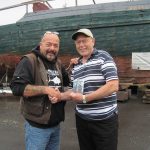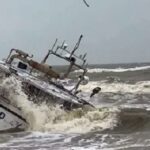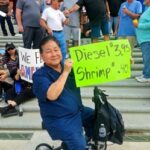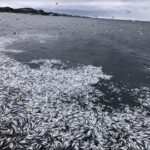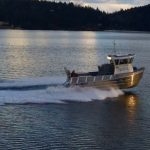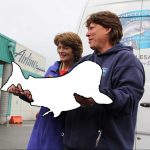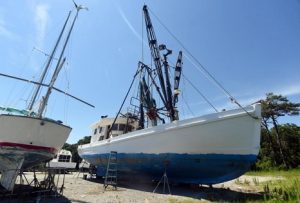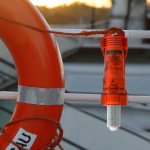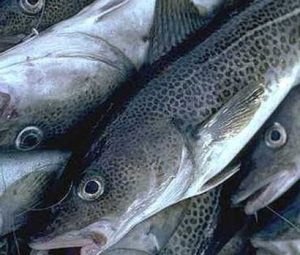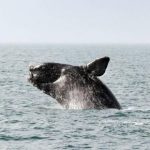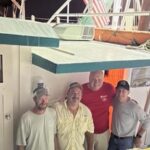Tag Archives: Third Party certification
U.S. Gulf of Mexico Shrimp Fishery Achieves RFM Certification
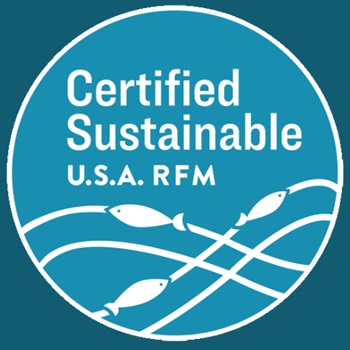 The Certified Seafood Collaborative (CSC) is pleased to announce that the U.S. Gulf of Mexico shrimp fishery (white, brown, and pink shrimp) for all five Gulf states and federal waters has achieved Responsible Fisheries Management (RFM) Certification. This is the first shrimp fishery certified to the RFM Standard. RFM Certification requires fisheries meet RFM Standard criteria which evaluate fisheries in four key areas: A) the fisheries management system; B) science and stock assessment activities, and the precautionary approach; C) management measures, implementation, monitoring, and control; and D) serious impacts of the fishery on the ecosystem. Third-party certification body Global Trust awarded the certification after a thorough evaluation of the Gulf of Mexico Shrimp fishery as reported in the Final Assessment Report. more, >>CLICK TO READ<< 06:16
The Certified Seafood Collaborative (CSC) is pleased to announce that the U.S. Gulf of Mexico shrimp fishery (white, brown, and pink shrimp) for all five Gulf states and federal waters has achieved Responsible Fisheries Management (RFM) Certification. This is the first shrimp fishery certified to the RFM Standard. RFM Certification requires fisheries meet RFM Standard criteria which evaluate fisheries in four key areas: A) the fisheries management system; B) science and stock assessment activities, and the precautionary approach; C) management measures, implementation, monitoring, and control; and D) serious impacts of the fishery on the ecosystem. Third-party certification body Global Trust awarded the certification after a thorough evaluation of the Gulf of Mexico Shrimp fishery as reported in the Final Assessment Report. more, >>CLICK TO READ<< 06:16
Louisiana Shrimp Task Force approves money to assess sustainability
 The Louisiana Shrimp Task Force approved spending $10,000 for a fishery sustainability pre-assessment to be done in the state. A pre-assessment is the first step in a fishery being certified environmentally sustainable and conforms to a set of internationally recognized standards. In a Fishery Improvement Plan, a pre-assessment is done on the fishery to gauge where the fishery stands relative to a certification standard. In this instance, the Marine Stewardship and Conversation program standards. Read the rest here 10:49
The Louisiana Shrimp Task Force approved spending $10,000 for a fishery sustainability pre-assessment to be done in the state. A pre-assessment is the first step in a fishery being certified environmentally sustainable and conforms to a set of internationally recognized standards. In a Fishery Improvement Plan, a pre-assessment is done on the fishery to gauge where the fishery stands relative to a certification standard. In this instance, the Marine Stewardship and Conversation program standards. Read the rest here 10:49
Overwaitea Food Group dropped by sustainable seafood program SeaChoice
 SeaChoice, a national sustainable seafood program, has dropped one of its most prominent partners, the Overwaitea Food Group, due in part to ongoing problems with getting information about where the fish sold in stores was caught. “It was disappointing,” said Jay Ritchlin, a director-general for the David Suzuki Foundation which overseas SeaChoice. Where seafood comes from — and how it was caught — are both important pieces of information in deciding whether that stock can be considered sustainable. For example, SeaChoice tells consumers to avoid farmed shrimp from the U.S. and choose instead trap-caught shrimp from Nova Scotia. Read the rest here 10:00
SeaChoice, a national sustainable seafood program, has dropped one of its most prominent partners, the Overwaitea Food Group, due in part to ongoing problems with getting information about where the fish sold in stores was caught. “It was disappointing,” said Jay Ritchlin, a director-general for the David Suzuki Foundation which overseas SeaChoice. Where seafood comes from — and how it was caught — are both important pieces of information in deciding whether that stock can be considered sustainable. For example, SeaChoice tells consumers to avoid farmed shrimp from the U.S. and choose instead trap-caught shrimp from Nova Scotia. Read the rest here 10:00

































